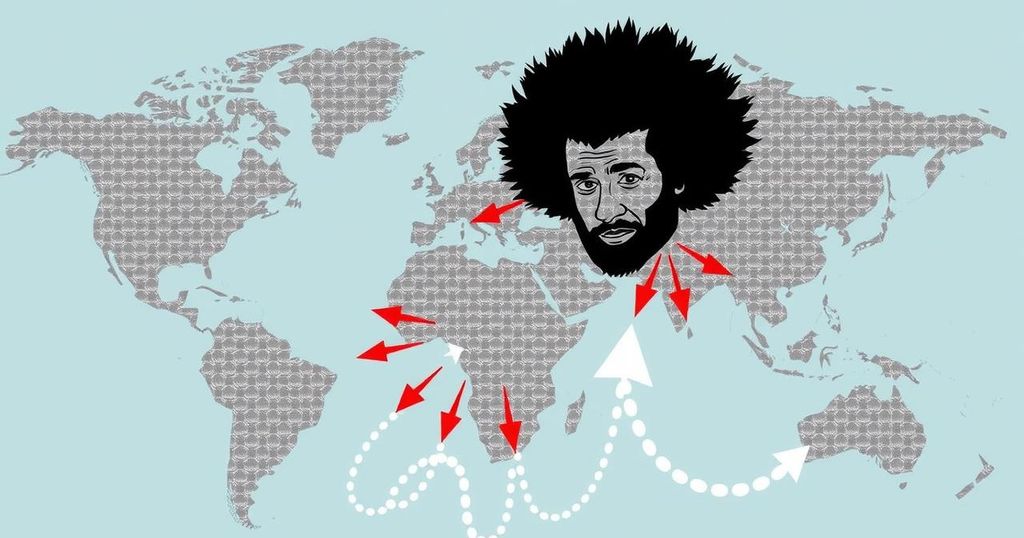Climate change
AFRICA, CENTRAL, CLIMATE, CLIMATE CHANGE, CLIMATE RESILIENCE, DEPARTMENT OF GEOGRAPHICAL DEVELOPMENT RESEARCH, EUROPE, FOOD SECURITY, GLOBAL SOUTH, LISA SCHIPPER, NORTH AMERICA, PARIS AGREEMENT, PHYS, SC, SCHIPPER, SCIENCE, SOUTH AMERICA, UNITED STATES, UNIVERSITY OF BONN, WORLD WEATHER ATTRIBUTION
Leila Ramsay
0 Comments
Funding Crisis Threatens Climate Adaptation in Developing Countries
Experts express alarm concerning a looming funding crisis for climate adaptation initiatives in the Global South, due largely to skepticism from affluent nations about the effectiveness of adaptation indicators. This trend jeopardizes the financial support required to combat climate impacts as 2024 is projected to be the warmest year on record, underscoring the urgency for concrete funding solutions.
In a recent study, experts have raised concerns regarding the significant reduction in funding essential for climate mitigation and adaptation in lower-income countries. Although the urgency to address climate change has never been clearer, skepticism surrounding the accuracy of adaptation indicators remains prevalent among affluent nations. This skepticism chiefly dwells in the Global North, threatening the financial resources vital for Global South nations striving to combat climate impacts.
2024 is alarmingly projected to be the warmest year on record, solidifying the need for robust climate strategies. With the world having witnessed its hottest summer and recorded an unprecedented single-day temperature in its 175-year climate history, the consequences of climate change are increasingly evident. A study by World Weather Attribution details how the deadliest extreme weather events of the last two decades were intensified by anthropogenic warming.
Dr. Lisa Schipper, a noted professor at the University of Bonn, highlighted the potential repercussions of political leaders’ claims stating, “If political decision-makers claim that it is impossible to measure the success of adaptation measures due to their complexity, this can have an impact on the financing of such measures.” She further emphasized that without measurable indicators, nations from the Global South fear their pleas for funding will fall on deaf ears.
The vital role of funding for climate initiatives cannot be overstated. Evidence illustrates that investments in adaptation can yield substantial net benefits, with every dollar spent potentially returning two to ten dollars according to the Global Commission on Adaptation. Efforts to raise awareness about the funding crisis can significantly assist vulnerable nations, encouraging individuals to engage in discussions and donate to causes dedicated to alleviating this crisis.
The importance of adequate funding for climate adaptation and mitigation efforts has become increasingly evident in light of recent climate events. As the impact of climate change escalates, nations from the Global South face daunting challenges in securing necessary financial resources. Skepticism from wealthier nations regarding the validity of adaptation metrics presents a significant barrier. This context shapes the ongoing discourse on how to effectively allocate resources to those who require them most, thereby underscoring an essential aspect of the global climate narrative.
In summary, the funding crisis faced by countries in the Global South poses a significant threat to their ability to address the effects of climate change. As skepticism regarding adaptation metrics persists among wealthy nations, the urgency to reassess funding allocations and bolster support for vulnerable regions cannot be ignored. Enhancing public awareness and encouraging contributions to relevant causes may prove crucial in remedying the funding shortfall and fostering global resilience against climate adversities.
Original Source: www.thecooldown.com




Post Comment